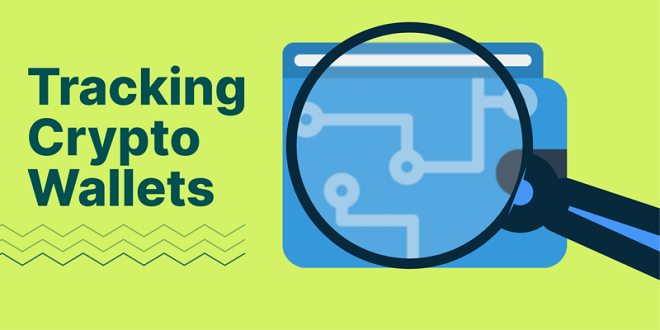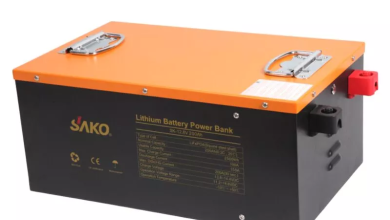Navigating Through Cryptocurrency Wallet Types

There are options of crypto wallets available that offer different functions. These wallets allow users to buy, trade and invest in cryptocurrencies. As people become more knowledgeable, about security and experienced in the world they become more cautious about safeguarding their assets. It’s important to have an understanding of how these wallets work in order to make a decision. It’s worth noting that these wallets don’t physically store coins or bills but private keys that serve as proof of ownership. To authenticate and transfer funds both public and private keys are necessary. Considering the range of wallet types with their own unique features and properties users should carefully evaluate their choices before making a selection. Ultimately having a grasp of the types of crypto wallets available will enable users to make informed decisions and enhance the security of their stored cryptocurrencies.
The role of cryptocurrency wallets
Crypto wallets function as software applications that enable interactions with networks and provide storage for keys. These keys act as identifiers, for tracking ownership managing balances and sending/receiving cryptocurrencies. However the critical aspect of these wallets lies in their ability to securely store keys.
Cryptocurrency owners use codes known as keys to prove their ownership and interact with the blockchain. Losing or having these keys stolen puts their cryptocurrency ownership at risk like the importance of protecting the seed phrase. In case of loss or damage backup copies of wallets can be restored using either the seed phrase or private keys. It is crucial to ensure their safety. Therefore it is vital, for cryptocurrency owners and traders to prioritize the security and privacy of their wallets and take all measures to safeguard their digital assets.
Understanding how cryptocurrency wallets work
Cryptocurrency wallets play a role in the blockchain ecosystem by utilizing blockchain technology to record all transactions securely. These wallets eliminate the need for an authority by leveraging distributed ledger technology enabling users to manage their funds. Miners verify the network by performing calculations through methods like Proof of Work or Proof of Stake guaranteeing its security. Wallets generate transactions. Digitally sign them using keys before sending them for verification and inclusion, in the blockchain. Once a transaction is completed it becomes irreversible.
Additionally wallets not provide security. Also offer a user friendly interface that allows individuals to interact with the blockchain easily. This accessibility makes it simple for enthusiasts of all skill levels to participate in the ecosystem. As cryptocurrency gains popularity there is an increasing demand, for wallets that’re both user friendly and equipped with security features.
Hot vs Cold Wallets — What’s the Difference?
Hot wallets grant access to your funds but they making your private keys vulnerable to hacking and malware attacks. These types of wallets include web based, mobile and desktop wallets. If you opt for a wallet it’s crucial to take precautions like using stronger encryption or secure enclave devices. On the hand cold wallets offer a level of security due to their offline nature. Examples of wallets include paper and hardware wallets.
Paper wallets give you a record of your public and private keys, which provides better protection against remote hackers but leaves them susceptible to physical loss or damage.
Hardware wallets however provide a device with transaction signing that is controlled by the user and immune to manipulation.
It is generally regarded as practice to store your cryptocurrency assets in a wallet, for secure storage that doesn’t require immediate access.
However it’s crucial to consider the risks and ensure the storage of your assets on your own.
Custodial vs. Non Crypto Wallets
Custodial Wallets:
Custodial wallets are popular among users who prioritize convenience over security. In these wallets the crypto wallet developer manages users private keys providing a user platform. However this convenience comes at the expense of increased security risks. Assets stored in wallets are susceptible to hacker attacks or service provider malfunctions that could compromise all users private keys.
Cryptocurrency exchanges often provide wallets catering to both newcomers and experienced traders. While using these wallets users must trust the service provider to store their tokens. It’s important to note that with security measures like two factor authentication (2FA) and biometric authentication in place, for transactions custodial wallets still pose a higher security risk compared to non custodial alternatives.
Non custodial Wallets:
Non custodial wallets offer heightened security when compared to their counterparts.
Non custodial wallets grant users control, over their keys, which are exclusively stored on their own devices. By storing keys the risk of centralized attacks is significantly diminished. This control over keys also means that users are not reliant on a party for security empowering them to take charge of their assets.
During the setup process users generate a recovery seed phrase that serves as a backup in case of device loss. Safeguarding this seed phrase becomes paramount for accessing funds and should be kept offline than being digitally stored. Users bear responsibility for their wallets security, including password and seed phrase management. While non custodial wallets may demand effort from users they provide peace of mind by ensuring asset control.
Different Types of Crypto Wallets and Their Use Cases
If you’re looking for a wallet that allows you to easily manage your cryptocurrencies and make trades on exchanges then hot wallets are a choice.
On the hand if you consider your cryptocurrencies a long term investment and prioritize security hardware wallets provide the level of protection against online threats. These wallets are designed for storing sums of cryptocurrencies.
For individuals who require access to their cryptocurrencies across devices, web wallets are a suitable option. They offer convenience for transactions and managing day to day expenses in cryptocurrencies.
Mobile wallets are ideal for payments and peer to peer transactions. They allow users to make payments, at stores that accept cryptocurrencies as easily send or receive cryptocurrencies from friends and family.
In conclusion selecting the right cryptocurrency wallet is crucial as it ensures the safeguarding and accessibility of assets.
There are types of cryptocurrency wallets and its important to understand the distinctions and consider the advantages and disadvantages of each before deciding which one to use. For beginners custodial hot wallets, like cryptocurrency exchanges are recommended because they offer access and user friendly interfaces. On the hand cold wallets are often preferred by investors who prioritize secure long term storage. Advanced users who want control over their keys tend to lean towards non custodial wallets. These wallets allow users to avoid using a device and ensure safety by keeping control of their digital assets in their own hands. Ultimately the choice of wallet depends on needs and preferences. Armed with information users can make a informed decision about which wallet is most suitable, for their digital assets.





